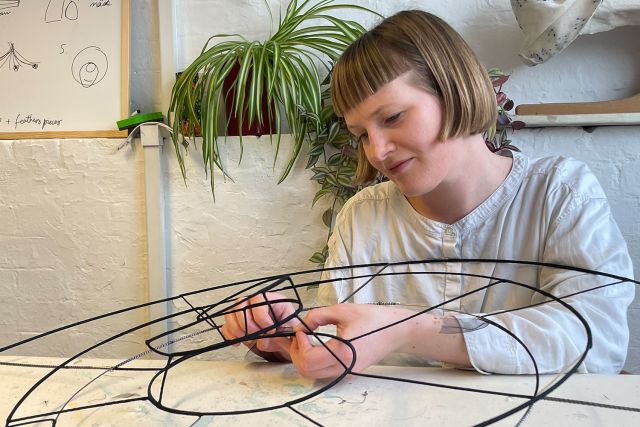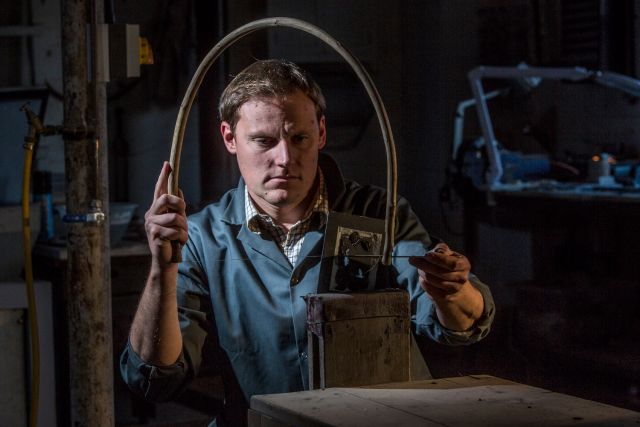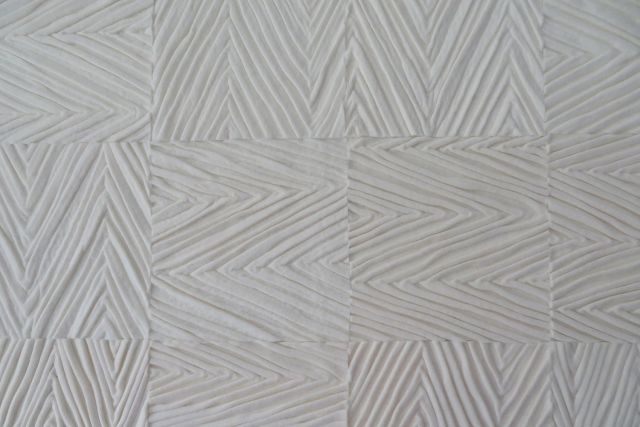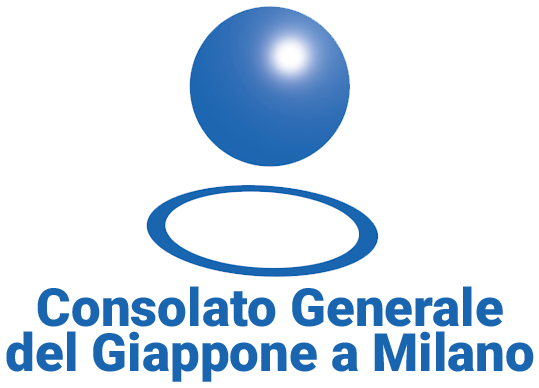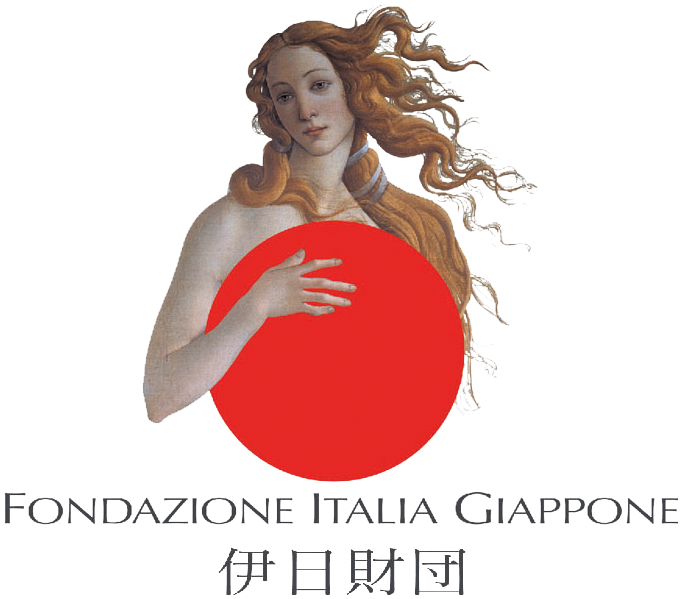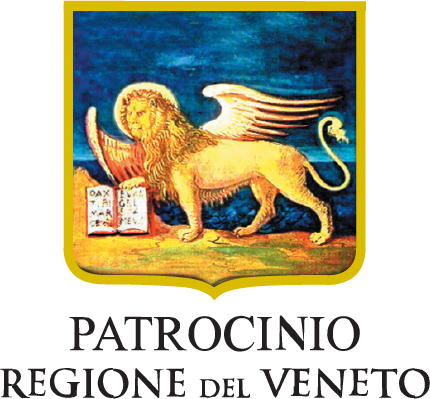Alexandra has decorated the surface of this copper bowl with detailed designs of dragonflies using the technique of plique-à-jour enamel. She chooses subjects that will highlight the technique as well as her personal experimentation. In contrast to the traditional technique where holes are pieced in the metal surface, Alexandra places metal wires directly on the copper, as per the cloisonné technique, and creates light and ethereal colours with enamel.
Width 12.7 cm
Height 13.97 cm
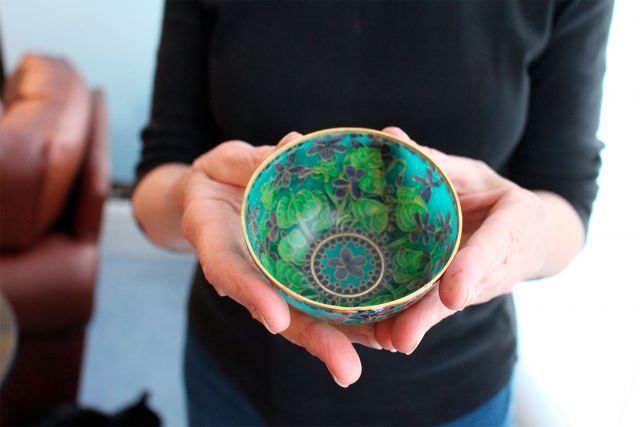
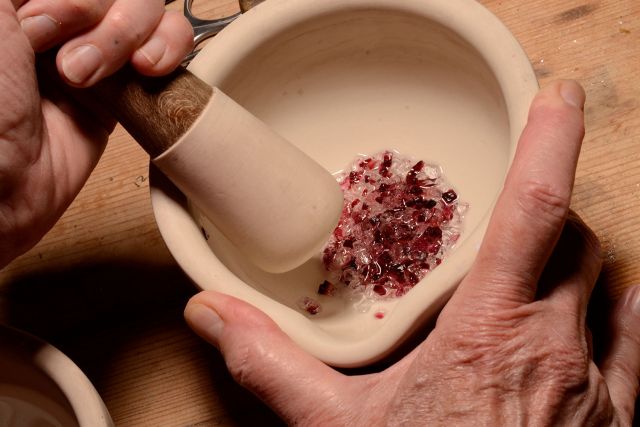

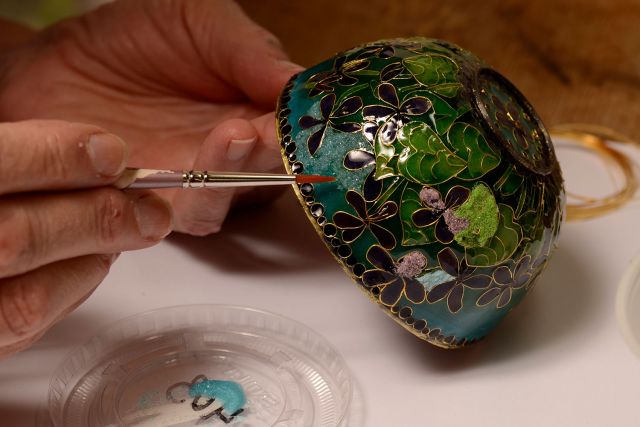
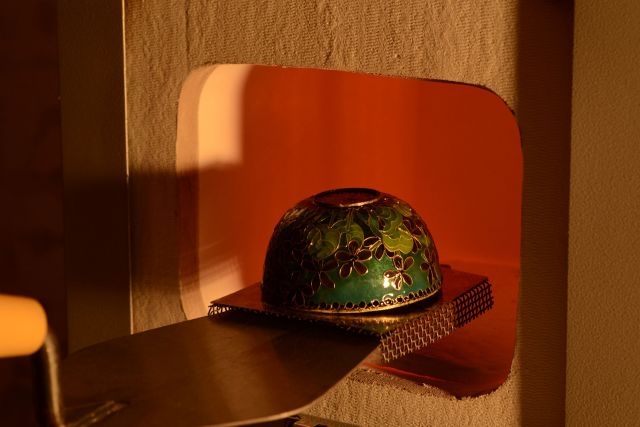
Alexandra Raphael
- Enameller
- London, United Kingdom
- Master Artisan
By appointment only
+44 7748648985
Watercolours in glass
- • Alexandra is a master of the Japanese plique-à-jour technique
- • She is inspired by the transparency of glass
- • Her plique-à-jour Lace Bowl is in the V&A Museum
Fascinated by jewellery from an early age, Alexandra Raphael was only 13 when she attended a summer art class in her native US. Such was her dedication that by the age of 18 she was the course assistant teacher. There, she started learning to solder and make silver jewellery, and began enamelling on copper bowls. In 1969 she moved to a remote part of Ireland with her husband. She bought her first kiln and began experimenting with enamels “because working with glass colour was so much more fascinating than plain silver jewellery”. In 1980, mesmerised by Japanese examples of plique-à-jour, or 'backless enamels', she began experimenting with that technique. Now a master of the craft, she uses thin gold wires and translucent glass colours to create what she calls "watercolours in glass”.
Read the full interviewWorks
Photo: © All rights reserved

Photo: © All rights reserved
Lace bowl, purchased by the V& A museum, presented a new challenge for Alexandra: “Could I make a bowl full of holes? It was an interesting puzzle and I loved trying to figure out all the problems I had during the process.” The surface of the copper bowl was decorated with enamel using Alexandra’s technique developed from the plique-à-jour method. The vitreous enamel is applied in layers, allowing the colours to blend, resulting in a light and ethereal effect.
Width 10.16 cm
Height 6.35 cm

Photo: © All rights reserved
This copper bowl, decorated with the plique-à-jour technique, was created as a study into varying shades of grey. Alexandra works on themes that highlight the qualities of enamel. In contrast to the traditional technique, where holes are pieced in the metal surface, Alexandra places thin gold or silver ribbons on copper, as per the cloisonné technique, and puts the enamel directly on the metal. The glass is applied in layers, allowing the colours to blend, resulting in light and ethereal colours.
Width 8.89 cm
Height 5.08 cm

Photo: © All rights reserved
The surface of this copper bowl has been decorated with detailed designs of jellyfish and underwater life using Alexandra's own technique developed from plique-à-jour enamel. In contrast to the traditional technique where holes are pieced in the metal surface, Alexandra places gold and silver strips directly on the copper, as per the cloisonné technique, and adds enamel in layers. This allows her to obtain a bigger range of colours.
Width 10.16 cm
Height 6.35 cm

Photo: © All rights reserved
Alexandra likes to work on subjects that accentuate and highlight the light and colours attainable with vitreous enamel. Over the years, she has developed the plique-à-jour enamelling technique, progressively pushing its limits. While this traditionally involves piercing the metal surface before adding enamel, Alexandra applies enamel directly to copper that she has already prepared with gold or silver cloisonné. The enamel is then applied in layers, a process that brings out different shades of colour.
Width 6.985 cm
Height 7.62 cm





